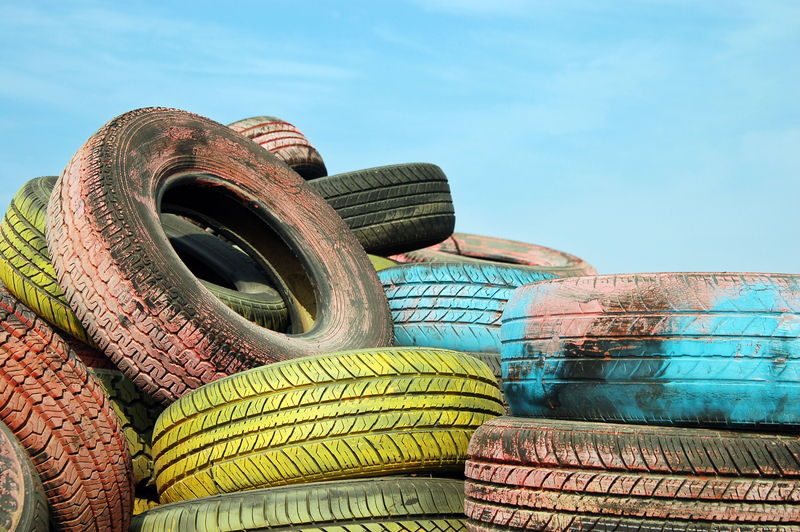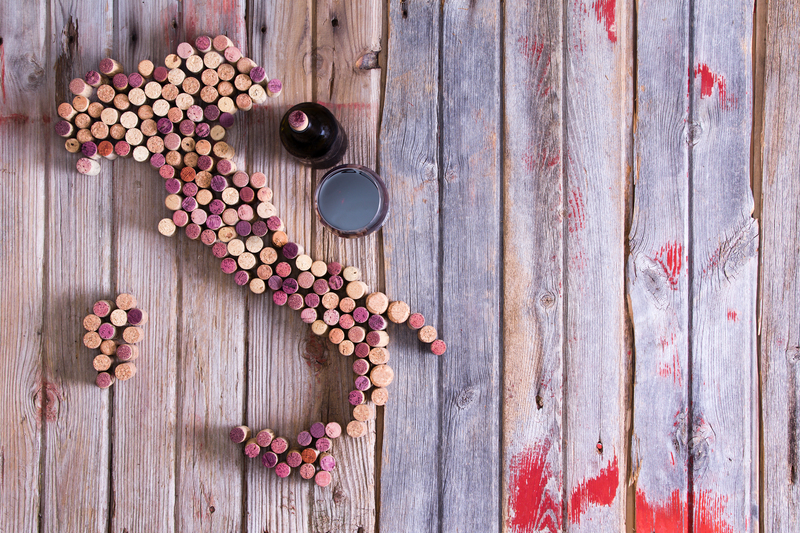Minimalist Mindset: De-cluttering as a Stress Buster
In today's fast-paced world, stress has become a part of everyday life. From managing work and family to juggling endless responsibilities, it's easy to feel overwhelmed. One solution that has gained popularity is adopting a minimalist mindset. By focusing on what truly matters and eliminating the excess, minimalism offers not just a tidier home but also significant mental health benefits. De-cluttering stands out as a powerful strategy to reduce stress and bring harmony to both your environment and psyche. This comprehensive article explores how embracing a minimalist approach and de-cluttering can become your ultimate stress-busting tool.

Understanding Minimalism: Beyond Just Cleaning
For many, minimalism conjures images of empty spaces or bland decor. However, at its core, minimalism is about intentional living. It's a mindset shift that puts focus on owning and cherishing only what brings you joy, value, and purpose. Minimalist living is not about deprivation; it's about liberation--letting go of what weighs you down and making room for happiness and peace.
Core Principles of a Minimalist Mindset
- Intentionality: Making conscious decisions about what to keep and what to let go.
- Value Focus: Prioritizing belongings, activities, and people that align with your values.
- Quality over Quantity: Choosing fewer, high-quality possessions over hoarding many things.
- Clarity and Purpose: Striving for mental and physical spaces that uplift and inspire.
Switching to a minimalist lifestyle involves more than just emptying your home. It involves a shift in mindset--learning to appreciate what you have, let go of attachments, and create breathing room in your life, home, and mind.
De-cluttering: The First Step Towards Stress Relief
Clutter is more than just an eyesore--it can be a major stress inducer. Whether it's stacks of unopened mail, overflowing closets, or a garage filled with forgotten items, clutter overwhelms our minds and blocks our ability to think clearly.
Why Does Clutter Cause Stress?
- Visual Overload: Messy environments overload our senses, making it hard to relax or focus.
- Decision Fatigue: Constantly navigating messes drains mental energy and increases anxiety.
- Procrastination and Guilt: Clutter often reminds us of unfinished tasks, leading to chronic guilt and avoidance.
- Disrupted Productivity: Physical clutter translates to mental clutter, reducing efficiency and creativity.
When we de-clutter--whether it's our home, workspace, or digital world--we regain control over our environment and, by extension, our internal state. Adopting a minimalist mindset eliminates unnecessary distractions, fosters tranquility, and creates space for what truly matters.
The Science Behind De-cluttering and Stress Reduction
Research consistently shows a direct connection between clutter and increased stress levels. A study conducted by the UCLA Center on Everyday Lives and Families found that people who describe their homes as cluttered experience higher levels of the stress hormone cortisol. Conversely, organized and open spaces foster calm, focus, and satisfaction.
- Improved Mood: Studies reveal that tidier environments boost contentment and lower anxiety.
- Better Sleep: Reduced clutter in bedrooms leads to more restful sleep, as there are fewer distractions.
- Greater Productivity: Clearer spaces help your mind focus, increasing efficiency and creativity.
Incorporating minimalist de-cluttering habits is not merely about aesthetics; it's a proven way to enhance emotional well-being.
Embracing the Minimalist Mindset: Practical Steps to De-clutter
Transitioning to minimalism doesn't happen overnight. It requires patience, practice, and a sincere commitment to change. Here's a comprehensive guide to start de-cluttering for stress relief:
1. Start Small and Build Momentum
Don't try to overhaul your entire living space in one day. Begin with a single drawer, shelf, or corner. Once you feel the calming effects, you'll be inspired to tackle larger areas.
2. Categorize Your Belongings
- Keep: Items you use often or that bring you joy.
- Donate: Gently used items you no longer need but could benefit someone else.
- Discard: Things that are worn out, broken, or no longer useful.
3. Employ the "One In, One Out" Rule
Every time you bring a new item into your home, commit to removing another. This simple rule maintains balance and prevents clutter creep.
4. Create Designated Spaces
- Everything in its place: Assign a home for every item to reduce future mess.
- Labeling: Clearly marked storage helps find items quickly and reduces stress.
5. Go Paperless Where Possible
Hidden clutter, such as piles of paperwork, can cause as much anxiety as visible mess. Digitize what you can and shred unnecessary documents.
6. Be Ruthless with Sentimental Items
Sentimental items are the hardest to part with. Keep what truly has meaning, and consider photographing keepsakes before letting them go.
De-cluttering Beyond the Home: Digital and Mental Minimalism
Digital De-cluttering Techniques
- Unsubscribe: Reduce digital noise by unsubscribing from unnecessary newsletters and notifications.
- Organize Files: Regularly delete outdated files and back up important data in orderly folders.
- Limit Apps: Keep only the apps you regularly use to maintain a clean and efficient device.
Mental De-cluttering for Emotional Tranquility
- Practice Mindfulness: Set aside time to meditate or breathe deeply, clearing your mind of racing thoughts.
- Journaling: Write down worries, to-do lists, or random thoughts to externalize mental clutter.
- Set Boundaries: Learn to say no to commitments that drain your energy or time.
By practicing digital and mental minimalism, you create more mental bandwidth for creative thinking, deeper relationships, and genuine relaxation.
The Psychological Benefits of De-cluttering and Minimalism
What do you stand to gain by embracing the minimalist mindset? The changes go far beyond tidy rooms:
- Reduced Anxiety and Overwhelm: Fewer possessions mean less to manage and worry about.
- Increased Sense of Control: A well-ordered environment fosters confidence and security.
- More Time and Energy: Less cleaning and organizing allow you to spend time on activities you love.
- Clarity in Decision Making: Minimalism teaches you to evaluate choices based on real value.
- Greater Satisfaction: Enjoying what you have, rather than constantly striving for more, leads to genuine contentment.
Research highlights that those who regularly de-clutter experience lasting improvements in mood, self-esteem, and everyday satisfaction.
Tips for Sustaining a Minimalist Lifestyle
Sustaining a minimalist mindset is a continuous journey. Here are practical strategies to prevent backsliding into old habits:
- Regular Review: Periodically review your possessions, digital spaces, and commitments.
- Mindful Purchasing: Before buying, ask yourself if the item serves a real purpose or strengthens your values.
- Embrace Experiences Over Things: Invest in experiences, relationships, and memories instead of possessions.
- Involve the Whole Family: Teach children and loved ones the benefits of a clutter-free lifestyle.
- Create Rituals: Establish mini-routines for daily or weekly tidying to maintain order effortlessly.

Minimalism as a Path to Wellness
Adopting a minimalist approach to living goes beyond the visual appeal of simplicity. It's a commitment to mental clarity, emotional balance, and conscious living. By reducing clutter inside your home and mind, you unlock space for creativity, connection, and calm.
Inspirational Success Stories
Many people credit the minimalist mindset with dramatic life changes. For example, after simplifying her home, Jane found herself able to finally launch her freelance business--her mind was less scattered, and her workspace was more functional. Similarly, Mark experienced better sleep and less anxiety after clearing out his digital files and unsubscribing from non-essential notifications.
Conclusion: Discover the Stress-Relief Power of Minimalism
In an era where stress is at an all-time high, adopting a minimalist mindset through de-cluttering offers a refreshing antidote. Not only does it create harmonious, beautiful spaces, but the effects seep deep into your emotional and psychological well-being. By making intentional choices, letting go of excess, and prioritizing quality, you pave a sustainable path to greater peace, productivity, and happiness.
Start small, stay consistent, and watch as de-cluttering transforms not just your environment--but your entire outlook on life. Embrace minimalism today as your future self will thank you.